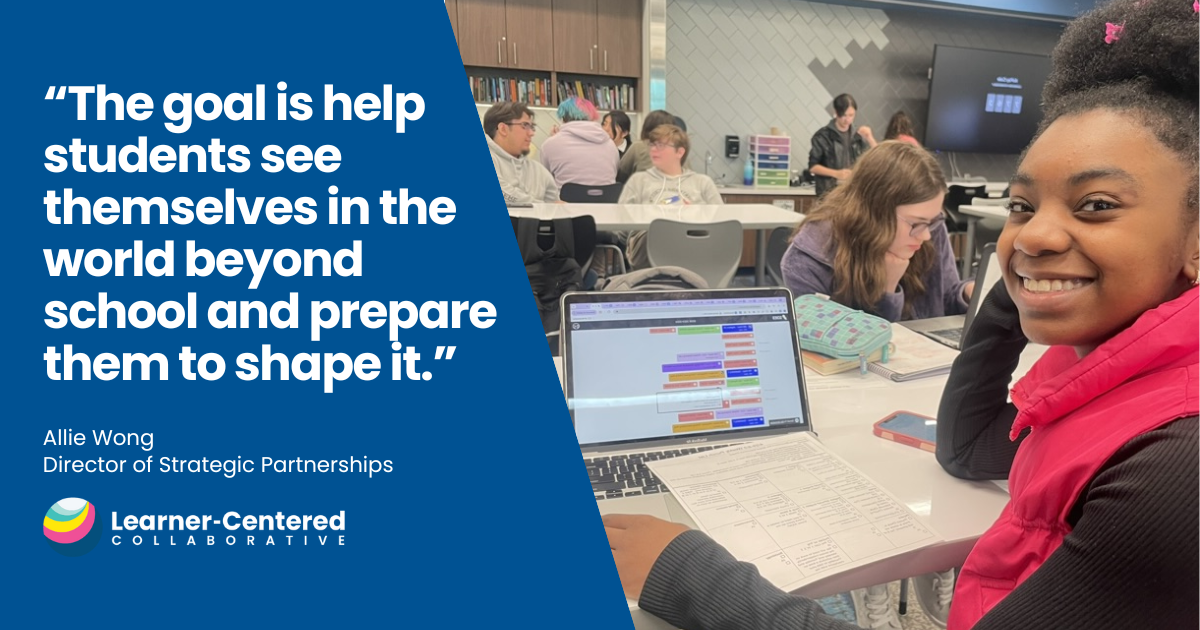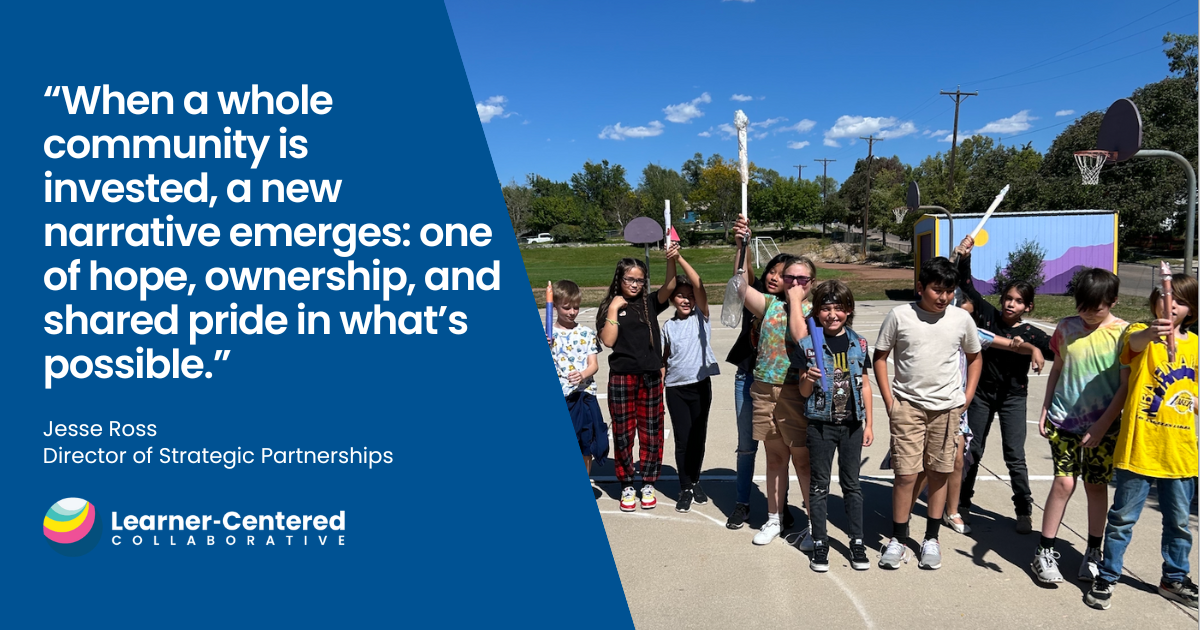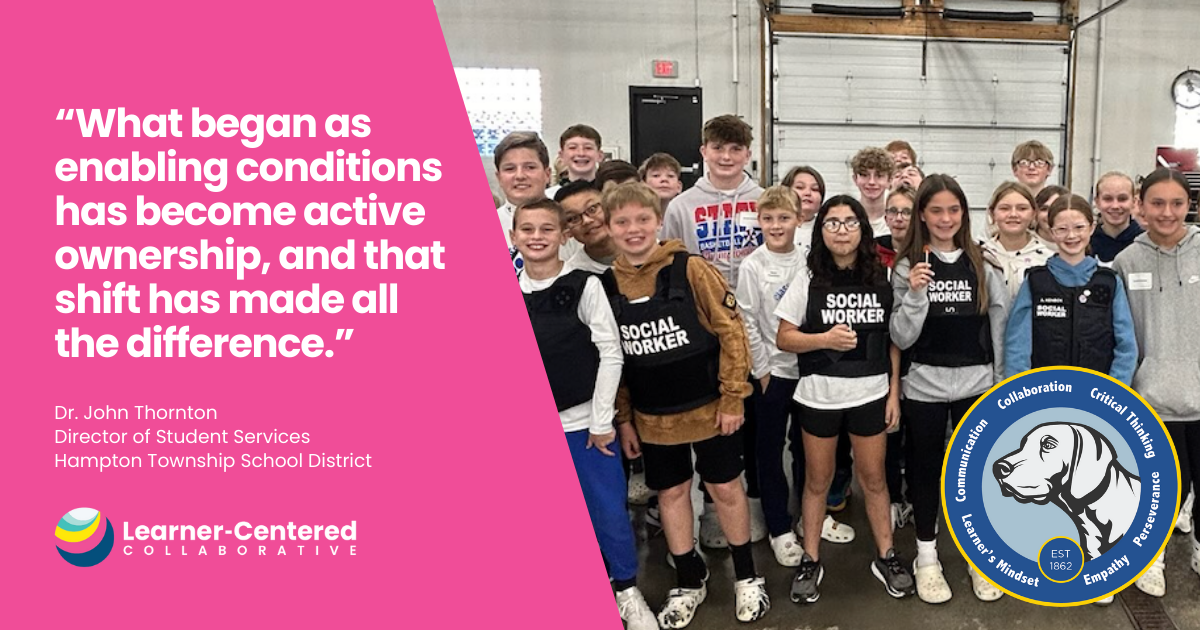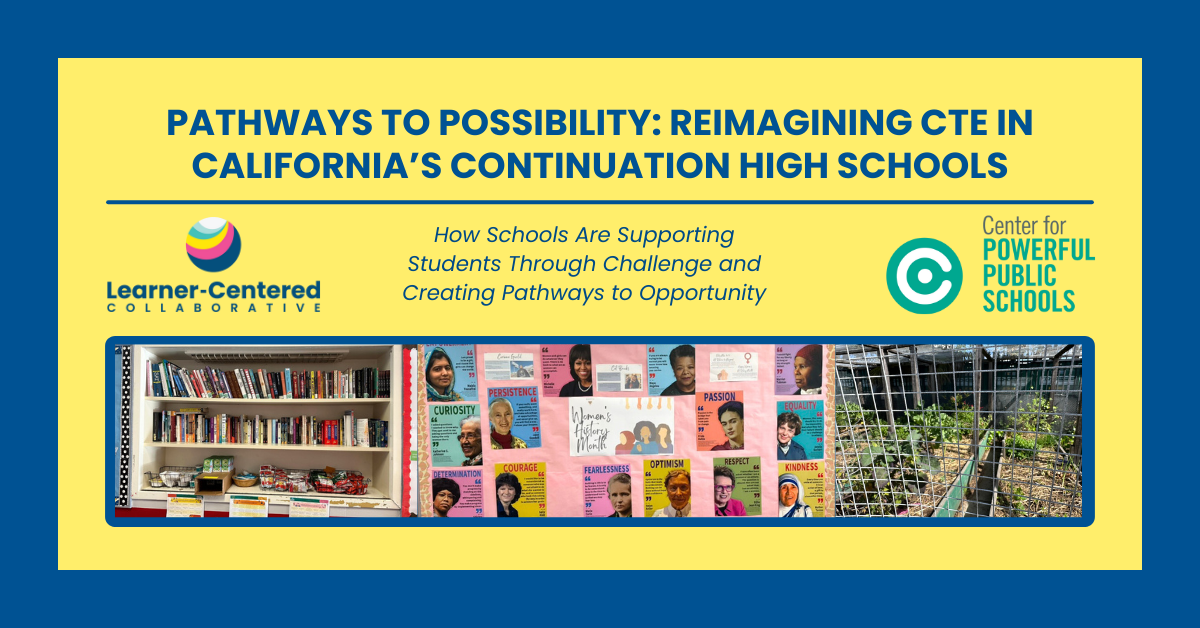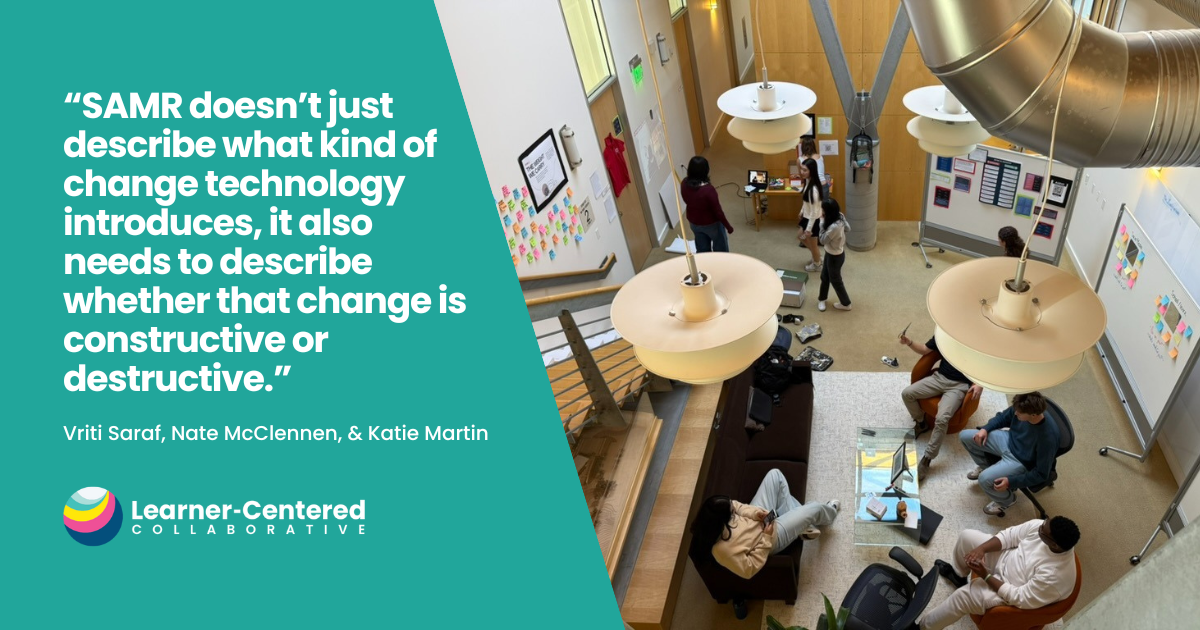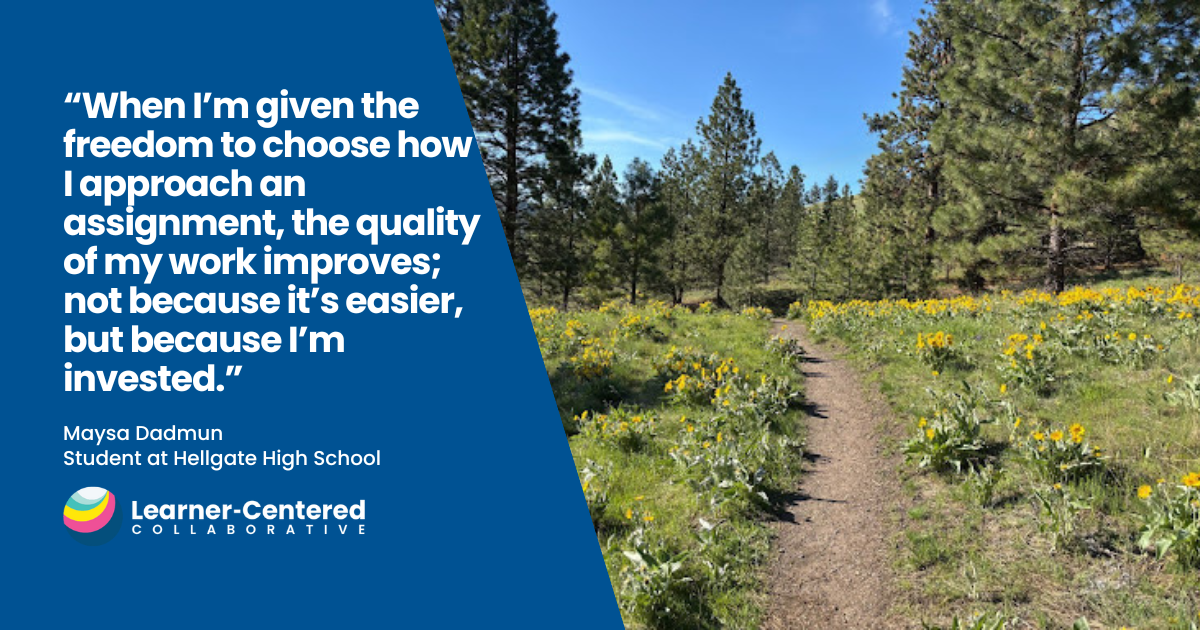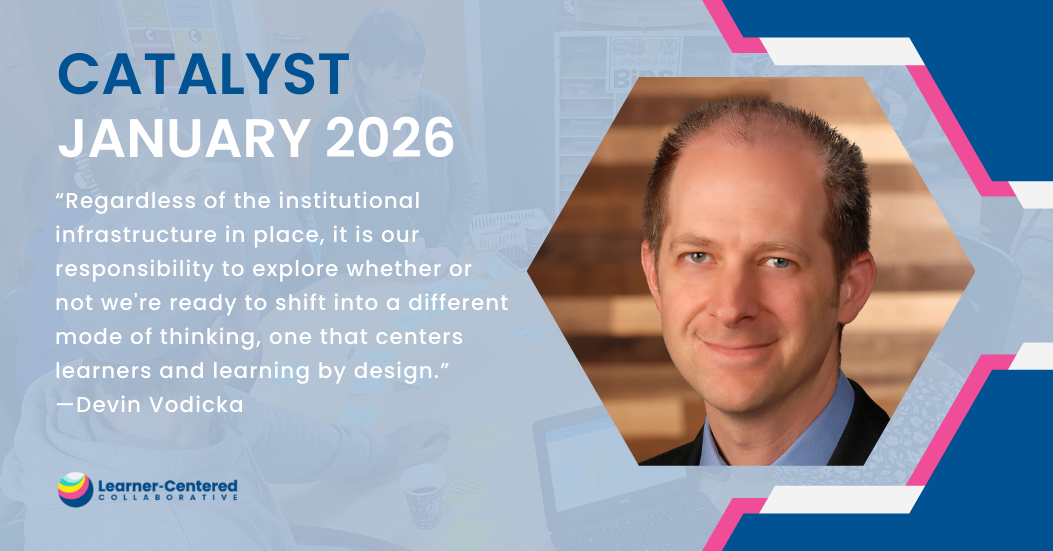Lake Living and Life Lessons: A 12th Grader’s Reflection on Learner-Centered Education in the Upper Peninsula
By Everest Orlikowski, Student at Clark Street Community School
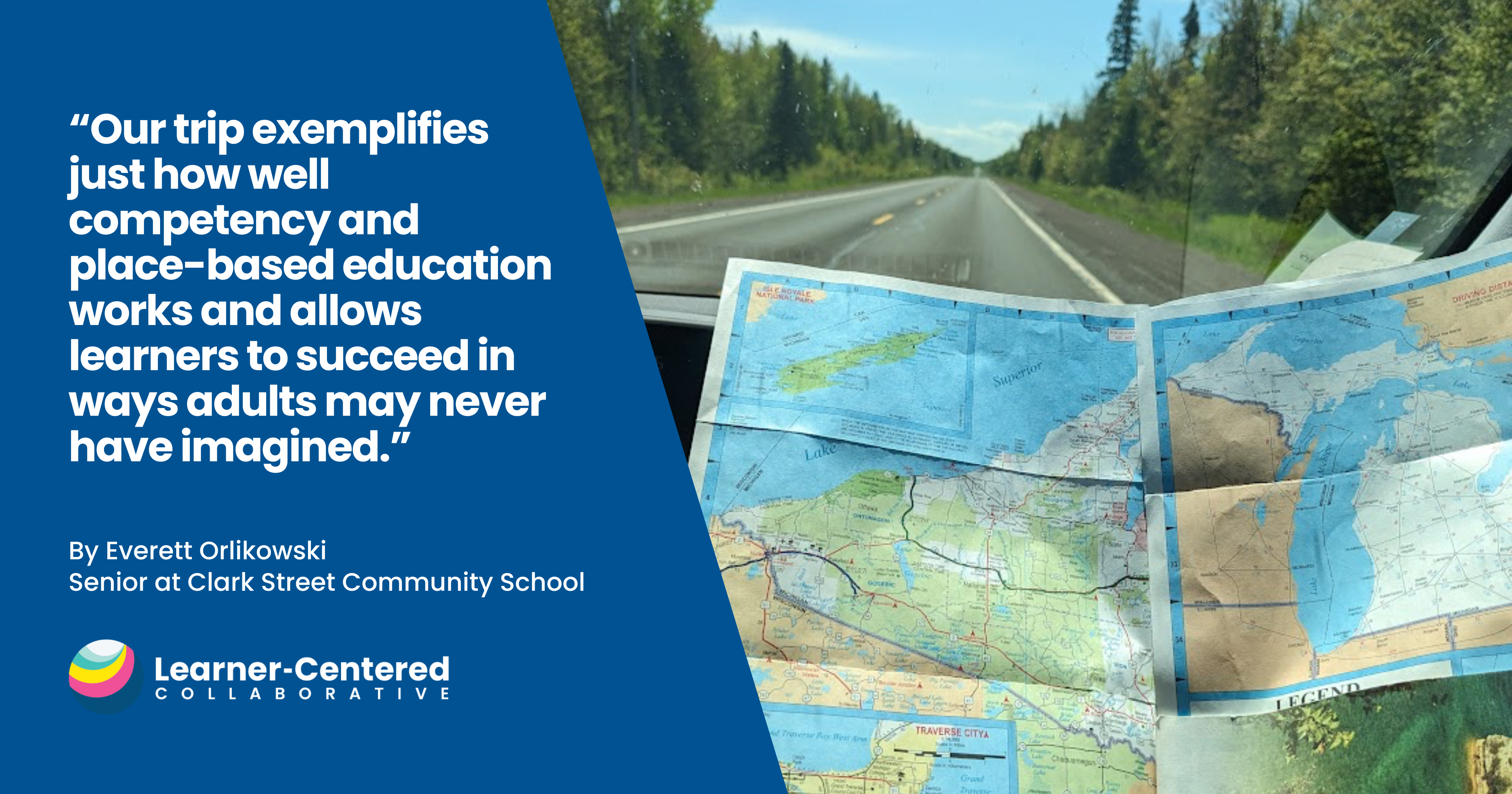
If you had the chance to learn about anything you wanted, what would you explore and how would you do it? My high school, Clark Street Community School (CSCS) in Middleton, Wisconsin, presents students with this choice many times throughout our secondary education which allows us to engage in some truly incredible learning experiences.
One thing that the staff at CSCS know and value is that when students incorporate interests and passions into our education, we learn much more and often develop lifelong passions for learning.
To promote that practice, the school runs a seminar called “Project Block,” a space designed to provide time for students to develop a project rooted in something that they are passionate about. Armed with our passion for adventure and fishing, my friend and I designed a project full of deep learning and community connections.
We embarked on a week-long road trip through Wisconsin and the Upper Peninsula of Michigan to learn about continuity and change in local fishing culture, something your average traditional high school student wouldn’t be able to do.

During our in-school time to work on our project, we planned the logistics, connected with local experts to set up times to meet during the trip, and formulated our inquiry questions. Our guiding question was, “How has fishing culture changed over time in the Great Lakes region?” and was supported by multiple sub-questions.
When planning logistics, we booked campsites, mapped out our route (we navigated using only paper maps), created a budget, and made plans with our seminar teachers to complete the school work we would be missing while we were gone. Though we had a project coach, every part of the project was planned out and completed independently.
Rather than use Google or an online database to find articles and videos about fishing culture, which you might expect from a high school research project, all of the information we gathered came from content experts and experiences embedded in the community. This ranged from a visit to the Freshwater Fishing Hall of Fame to learn about record holders and historic bait to talking to local taxidermist Tim Gurtner (jokingly referred to as Taxidermy Tim) about trends in fish taxidermy.

We found our community partners through family connections and searching online for local experts. We contacted many possible experts, and though not all of them got back to us, the people we were able to organize learning experiences with were very valuable.
While we organized many experiences for ourselves while on the trip, the most impactful one was our interview with Rick Anderson, a lifelong fishing tour guide from Spooner, WI. Rick had ties to my friend’s family and he was more than willing to share his knowledge and expertise with us.
It was a hot sunny day without a cloud in the sky and Spooner Lake was glittering. Revving up the engine of the pontoon at one in the afternoon, Rick took us out on the lake where we fished for northern pike and panfish.

While on the boat, he talked for hours about changes in local tourism, historical bag limits, and his favorite fishing stories. He taught us how to tie knots, troll for fish, and the best spots for catching big bluegill. Before we knew it, it was almost eight at night and we had around seventy-five fish that were ready to be fried up and enjoyed.
That afternoon, Spooner Lake was the classroom and Rick was our teacher; that’s what made it so memorable. Everything we were taught was tied directly to what we were doing at that moment. All of this knowledge that he was passing to us originated from other experts and his own experience.
On a surface level, this project might sound like it was full of only fun and an excuse to visit Lake Superior, but it was very academically rigorous and expanded our thinking. In our planning stages, we connected the topics we intended to gather information on to social studies and art and design competencies we are required to meet in order to graduate. We collected our research while on the trip and then analyzed and drew conclusions once we got back and had a full body of information to look at and reflect on.

Though “art” may not be the first word that comes to mind when thinking about fishing, we found many examples during our research. We defined “art” as something that uses elements and principles of design (ex: color, shape, texture, emphasis, etc.) for a purpose or to communicate an idea. We used what we learned about taxidermy, fly tying, and bait trends to draw conclusions about the purpose of art and art from various movements.
We took what we learned about continuity and change in tourism, fishing styles, regulations, tools, and fishing culture to analyze the cultural group of fishermen using multiple lenses and to understand our local culture. As a final product of this project, we created a scrapbook that included all of our field notes, our final conclusions, and highlights of the trip.
Learn more about Clark Street Community School’s competencies and graduation requirements in Learner-Centered Collaborative’s Competency-Based Reporting Playbook
Along with the academics involved in this trip, we learned and practiced many life skills. This included things like quick problem solving, navigation, budgeting, and living on our own, just to name a few. These skills that I learned while on the lake and driving through the northwoods will be ones I carry with me for the rest of my life.

Engaging in this project really emphasized the importance of community connections for me. Without the relationships we formed with fishing and taxidermy experts, we would not have learned nearly as much as we did. Our trip also exemplifies just how well competency and place-based education works and allows learners to succeed in ways adults may never have imagined.
When given the chance, students excel at creating projects that not only are based in a passion but also connect to core educational competencies. I would urge educators to create space that allows your students to create experiences like mine and to give them the trust and support they need to succeed as a learner and a person.
Want to build more community-connected experiences into your learning environment? Check out our pages on Developing Community Partnerships and Passion Projects or take an online course on Project-Based Learning
To hear more from Everest and his experience at CSCS, listen to him speak with LCC Co-CEO Katie Martin on Episode 36 of the Learner-Centered Collaborative Podcast at the link below or wherever you get your podcasts.
